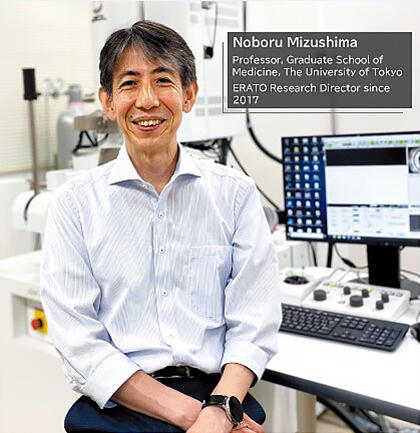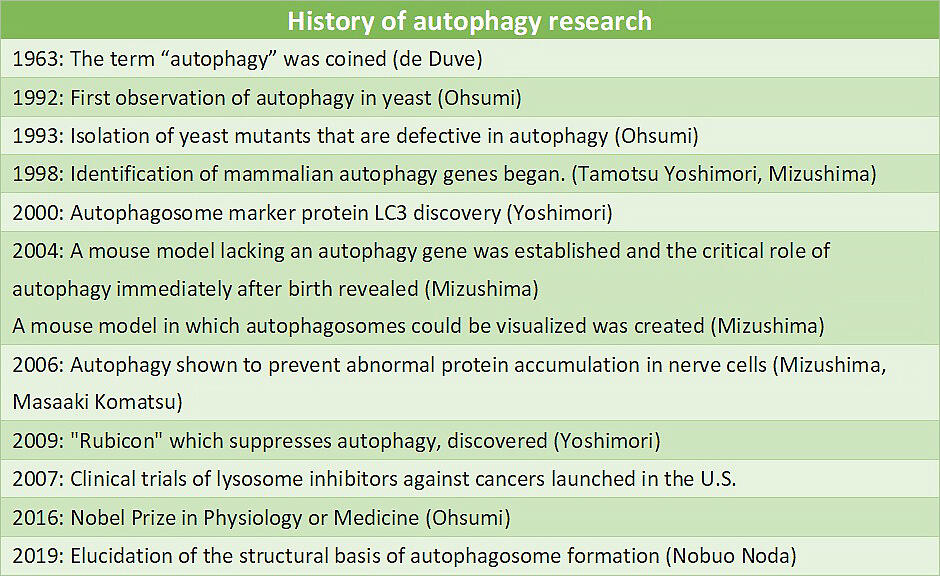
Autophagy is a system that functions in intracellular cleaning. It came under the spotlight when Professor Yoshinori Ohsumi of Tokyo Institute of Technology received the Nobel Prize in Physiology or Medicine in 2016. Today, researchers from a diverse range of fields have joined this field and found that various phenomena in our body are related to autophagy. From this background, in this article, the future prospects in this field are covered by following the trajectory of autophagy research over the last 60 years.

"The history of this field can be broadly divided into pre-Ohsumi and post-Ohsumi, that is, before and after Professor Ohsumi's discovery: it was such an impactful achievement," said Professor Noboru Mizushima of The University of Tokyo Graduate School of Medicine. Prof. Mizushima himself entered the world of autophagy research from the medical field, motivated by Dr. Ohsumi's dissertation, and is currently leading this field as the Research Director of ERATO's "Mizushima intracellular degradation project."
Autophagy is a common mechanism shared by most eukaryotes, from yeast to humans. It plays a crucial role in body homeostasis by preventing the accumulation of abnormal proteins and recycling proteins during starvation. The phenomenon of autophagy itself was discovered around 1960, but at that time, there was no means to observe it other than electronic microscopy, and the underlying mechanism had not yet been clarified.
The breakthrough was made in a study by Dr. Ohsumi, recipient of the 2016 Nobel Prize in Physiology or Medicine. Focusing on the vacuole, a cellular organelle, Dr. Ohsumi, who was trying to clarify the function of degradation in yeast, observed the phenomenon of autophagy using an optical microscope and reported it in 1992. Subsequently in 1993, he reported the isolation of 15 mutant strains that were unable to undergo autophagy. Based on these findings, the genes required for autophagy and the role of autophagy were clarified, and research on autophagy has made great progress since then.
Despite having progressed in the post-Ohsumi era, autophagy research has a long way to go. "Expectations are rising for research on medical applications. However, it is difficult to determine whether autophagy occurs even in cultured cells and experimental animals. It will be important for not only biologists and medical scientists but also researchers working in other fields such as artificial intelligence to participate in future autophagy research." Autophagy research has made great progress, but still has a long way to go. In this series of articles, we take a dive into the current status of the autophagy research field and its prospects.




